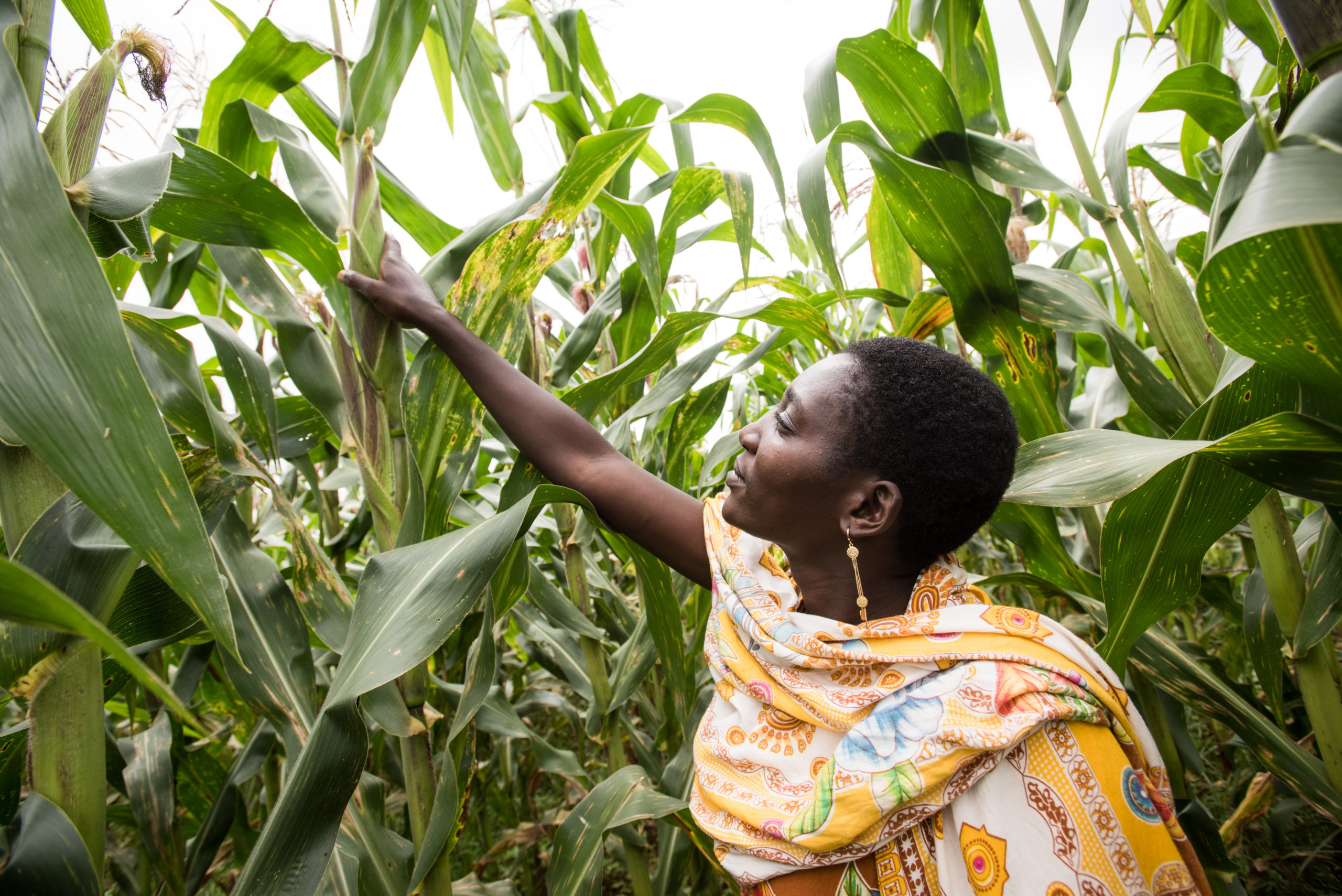<< Back to Media
U.S. International Development Finance Corporation Prioritizes Women’s Empowerment
March 29, 2020
U.S. Development Finance Corporation (DFC) is America’s development bank – with enhanced financial muscle. The agency partners with the private sector to finance solutions that foster global prosperity and stability. “We know that women are key to both,” said DFC spokesperson Laura Allen. To succeed, the bank is prioritizing women’s economic empowerment.
“By addressing the challenges they face – including a roughly $300 billion shortfall in access to credit – women could add an estimated $28 trillion to global GDP by 2025,” she said.
Through the 2X Women’s Initiative, DFC invests in businesses and funds owned by women, led by women, or providing a product or service that intentionally empowers women, such as clean water and quality healthcare. The initiative has already catalyzed more than $1 billion to empower women worldwide economically.
Why Women?
Allen says that when women earn a competitive income, they spend most of their earnings on their families. That means women reinvest in products and services like food, healthcare, and education that contribute to more robust and more resilient communities.
For example, DFC recently committed a $30 million loan to Sitara, an affordable housing finance company, to help low-income women in India purchase and build homes. The loans can also be used for critical home improvements such as adding on a permanent roof or installing a toilet.
“DFC’s investment in Sitara is helping empower women and create stronger communities by providing clean, safe, and secure homes for low-income women and their families throughout India,” said Adam Boehler, DFC’s Chief Executive Officer, during a February 2020 visit with Sitara borrowers in Dwarka, India. The loan to Sitara will help bridge a more than 10-million-unit housing gap in India, a perennial problem disproportionally affecting women and low-income populations.
Boehler said DFC will continue investing in projects promoting that promote women’s economic empowerment.

Women farmers in sub-Saharan Africa receive financing from OneAcreFund. Photo courtesy of DFC.
What’s Next at DFC?
In the first quarter of FY 2020, the 2X Women’s Initiative will support various projects to help close the credit gap and capture a multi-trillion opportunity. Here are a few projects DFC is already supporting:
• Creating jobs for women in Mongolia. A DFC loan has been crucial for Goyol Cashmere, a woman-owned, women-led company primarily employing women to expand its knitwear production business.
• Helping women access clean water across the world. DFC financing is helping WaterEquity’s Global Access Fund address limited access to clean water and sanitation—a challenge that disproportionately impacts women—across Africa, the Indo-Pacific, and Latin America.
• Empowering female farmers in Sub-Saharan Africa. DFC is helping to finance the One Acre Fund to provide seeds, fertilizer, and training to mostly women smallholder farmers in Burundi, Malawi, Kenya, Rwanda, Tanzania, Uganda, and Zambia.
• Financing women-owned SMEs in Paraguay. DFC is financing Banco Sudameris to support SMEs owned and led by women.
Looking ahead, Allen said DFC, Merck for Mothers, Credit Suisse, and the U.S. Agency for International Development (USAID) are pursuing an investment with LifeBank. This woman-founded company uses an innovative mobile app and scooters to deliver blood and other life-saving medical supplies to needy patients across Nigeria, particularly women in childbirth.
In Ecuador, 53,000 female entrepreneurs will have access to loans for their micro, small, and medium enterprises over the next five years. DFC is teaming up with Wells Fargo to provide $100 million in financing to Banco Pichincha, expanding lending to SMEs owned by, led by, or supported by women.
2X Women’s Initiative Multiplied by the Power of the Private Sector
Allen said that DFC is especially proud of its loan to Kiva, an online platform that connects individuals lending as little as $25 to low-income entrepreneurs worldwide. To date, Kiva has facilitated more than $1 billion in loans to women in over 80 countries.
She also said, “In 2017, DFC, then OPIC, provided $10 million in financing to help the San Francisco-based non-profit provide micro-loans that otherwise would not have been fully funded. Last October, we announced that our loan helped reach over 211,000 micro-entrepreneurs—more than 80 percent of whom are female—across 30 developing countries.”
The DFC partners with the private sector, like Kiva, to unlock the full potential of women and provide development assistance. Government resources are unable to meet the trillions of dollars needed annually to address the urgent challenges facing developing countries alone. That’s why DFC does more than just transfer resources—it mobilizes them through private sector financing and investments.
“This is exactly the kind of partner DFC wants to support,” said Allen about DFC and Kiva’s shared commitment to women.
“We know that our development impact is greater when we invest in women,” said Allen.
…
About the author: Mary Jane Maxwell is a Lead Consultant with Washington Business Dynamics, a Service-Disabled Veteran-Owned Small Business management consulting firm specializing in acquisition, strategic advisory, and international development. We work with our clients as partners to achieve institutional change, enhance operational performance, and build sustainable processes that deliver exceptional results. From our headquarters in Washington, DC, to cities worldwide, our experienced team delivers strategic insights by understanding where our clients want to go and the best way to get there. Our mission is simple: help our clients make better decisions.
